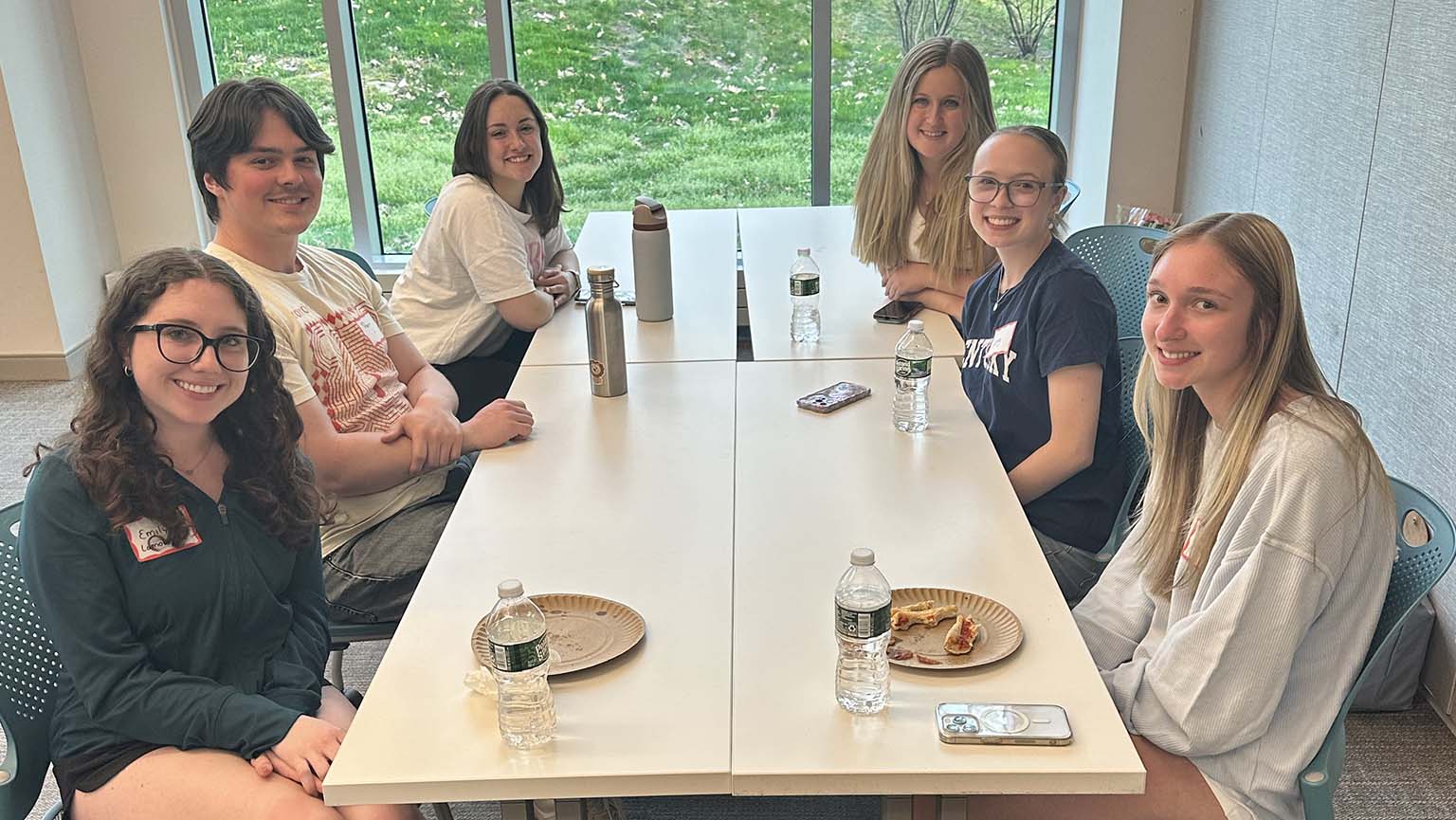The annual event gathered more than 50 students and faculty from assorted disciplines for meaningful conversations about death and dying.
Students Organize Death Café to Discuss the Inevitable


The annual event gathered more than 50 students and faculty from assorted disciplines for meaningful conversations about death and dying.
For all but the most devoted of existentialists, death is a taboo topic in the United States. As a result, many Americans fail to acknowledge their mortality and prepare for the inevitable. The avoidance of conversation about death is problematic, according to recent Fairfield University alumna Jillian O’Brien ’25, as it frequently forestalls important discussions about end-of-life care.
“If society talked more about death, people could comfortably discuss their wishes for their final days and have their desired treatment plans respected,” said the behavioral neuroscience graduate with a health studies minor. “This could help family members become stronger advocates for proper care of their loved ones.”
O’Brien helped organize the second annual Death Café during her final semester at Fairfield. She and her classmates in “End-of-Life Communication,” an interdisciplinary course taught by Michael Pagano, PhD, wished to build on the success of last year’s event by continuing to create a space for meaningful conversation about death and dying. At the event, they led thoughtful table discussions about how their perspectives and ways of communicating about death have evolved.
Co-sponsored by the John Charles Meditz College of Arts and Sciences' Department of Communication and the Marion Peckham Egan School of Nursing and Health Sciences' Kanarek Center for Palliative Care Nursing Education, the student-led event offered pizza and open dialogue about the last stage of the life-cycle and the role that many will occupy as final caregiver for those they love.
“The Death Cafe was a great experience,” O’Brien said. “At my table, there were many undergraduate students who had little experience talking about death. Our conversations about living wills and advanced directives helped me and others understand that we can protect our family members’ dignity by discussing future treatment plans with them.”
Reflecting on the impact of the event, she added: “The conversations helped us realize that talking about death allows individuals to recognize that true strength lies in vulnerability and connection, and that life is more than money and jobs.”
